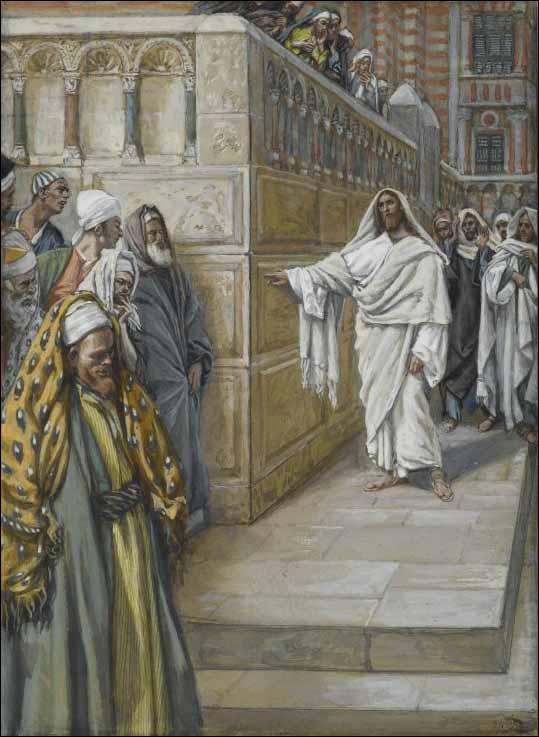3-5 October 2014
Homily of the Apostolic Nuncio
His Grace Archbishop Petar Rajič
Is 5:1-7; Phil 4:6-9; Mt 21:33-43
Jesus described to the Jews of his time and through them to us, the story of salvation as it developed over time. He didn’t do this directly by giving a historical account of the events, but rather chose a parable to illustrate the essential truth that God has always loved mankind and then what humankind’s response has been to the divine love of the Lord. The parable Jesus used, reminds us that salvation originates from God and that it is a gift which he generously offers it to all those who are willing to accept him as their Lord and Saviour. Our personal salvation therefore is an interaction between God who comes to us with the gift of himself and our free response to his mercy and goodness, which is being unravelled in our daily lives even today.
This parable has much to tell us in three directions. First of all it has much to tell us about God who trusts in men. The owner of the vineyard entrusted it to the cultivators and did not stand over them to exercise a police-like supervision. He went away and left them with their task. God pays men the great compliment of entrusting them with his work. Every task we receive is a task given us to do by God.
God is patient with mankind. The master sent messenger after messenger. He did not come with sudden vengeance when one messenger had been abused and ill-treated. He gave the cultivators chance after chance to respond to his appeal. God bears with men in all their sinning and will not cast them off, despite being hurt by mankind’s behaviour.
God will give the final judgment. In the end the master of the vineyard took the vineyard from the cultivators and gave it to others. God’s sternest judgment is when he takes out of our hands the task which he meant us to do. A man has sunk to his lowest level when he has become useless to God.
The parable also has much to tell us about mankind. It tells of human privilege. The vineyard was equipped with everything – the hedge, the wine press, the tower – which would make the task of the cultivators easy and enable them to discharge it well. God does not only give us a task to do but he also gives us the means whereby to do it.
It underscores human freedom. The master left the cultivators to do the task as they liked. God is no tyrannical task-master. On the contrary, he is like a wise commander who allocates a task and then trusts a man to do it.
It reminds us of human answerability. To all men comes a day of reckoning. We are answerable for the way in which we have carried out the task God gave us to do.
It shows the deliberateness of human sin. The cultivators carry out a deliberate policy of rebellion and disobedience towards the master. Sin is deliberate opposition to God; it is the taking of our own way when we know quite well what the way of God is.
Finally, the parable tells of the claim of Jesus. It shows us quite clearly Jesus lifting himself out of the succession of the prophets. Those who came before him were the messengers of God; no one could deny them that honour; but they were servants; he was the Son.
It also tells of the sacrifice of Jesus. It makes it clear that Jesus knew what lay ahead. In the parable the hands of wicked men killed the son. Jesus was never in any doubt of what lay ahead. He did not die because he was compelled to die, but he went willingly and open-eyed to death.
The story of salvation is being repeated and taking place in our lives as well. Jesus, our Lord and God, has been sent to us for our salvation and we can ask ourselves today at what stage of salvation have we arrived at and which role do we best fulfil in our lives? Are we like the workers in the vineyard who rejected the messengers of God, avoided their duties and sought only their own personal profit? Or are we prepared to accept our life task as it is revealed to us by the Lord, whatever that may be, and to fulfil it as best as we can, simply because it has been given to us by God who knows what is best for us?
But there is a promise in the words of Jesus: the vineyard will not be destroyed. While the landowner abandons the unfaithful tenants to their fate, he does not abandon his vineyard and he entrusts it to his faithful tenants. What this demonstrates is that, if in some areas faith weakens to the point of vanishing, there will always be other peoples ready to embrace it. This is why Jesus, as he quotes Psalm 117 (118:22) The stone which the builders rejected has become the cornerstone, which assures us that his death will not represent the defeat of God. Having been killed, he will not remain in the tomb, but rather that which appears to be a total defeat will mark the start of a definitive victory. His dreadful passion and death on the cross will be followed by the glory of the Resurrection. The vineyard will therefore continue to produce grapes and will be leased by the landowner to other tenants who will deliver the produce to him at the proper time.


